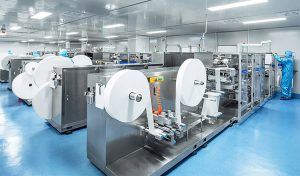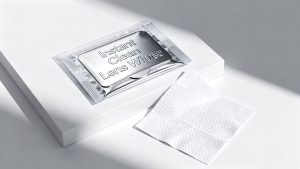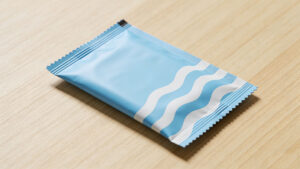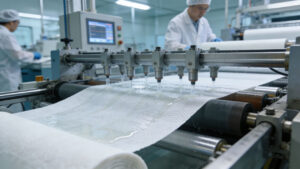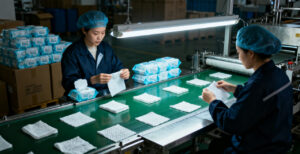Struggling to choose between alcohol-based and alcohol-free hand wipes? Your decision impacts effectiveness, skin safety, and compliance with flammability regulations.
Alcohol-based wipes (60-70% alcohol) kill 99.9% germs instantly but may irritate skin. Alcohol-free variants use benzalkonium chloride or hydrogen peroxide, offering gentler cleaning for sensitive skin and safer storage.
 While active ingredients define their core functions, these wipes differ drastically in real-world applications. Here's how to navigate their pros and cons across industries.
While active ingredients define their core functions, these wipes differ drastically in real-world applications. Here's how to navigate their pros and cons across industries.
How to Find Hand Wipe Manufacturers at Competitive Prices?
Bulk buyers often overpay for basic hygiene products due to opaque supply chains and middlemen markups. Source directly from ISO-certified manufacturers like BF1998 with 50 production lines, achieving 15-30% cost savings through vertical integration and MOQ flexibility (from 1,000 units to OEM bulk).
Supplier Evaluation Checklist
| Criteria | Alcohol-Based Wipe Suppliers | Alcohol-Free Wipe Suppliers |
|---|---|---|
| Minimum Order | 50,000 units | 30,000 units |
| Certifications | FDA, BRC, ISO 9001 | ECOCERT, FSC |
| Lead Time | 30 days | 45 days |
| Customization | Scent, packaging | Organic material compliance |
- Raw Materials: Alcohol prices fluctuate weekly vs stable plant-based antimicrobials
- Logistics: Alcohol wipes require hazardous shipping (UN1987 classification)
- Packaging: Child-resistant caps add $0.02/unit
How Does the Rise of Hygiene Awareness Impact the Hand Wipes Market?
Post-pandemic, 73% of restaurants now provide hand wipes - creating a $4.2 billion market scrambling for sustainable solutions. Demand shifted from emergency stockpiling to daily-use formats, with compostable bamboo wipes growing 240% YoY as businesses align with ESG goals.
Market Segmentation Analysis
By End User:- Healthcare: Still prefers alcohol-based (92% adoption)
- Foodservice: Switching to alcohol-free for customer-facing areas
- Aviation: Mandates flammability-rated options
- Smart Packaging: NFC-enabled wipe dispensers tracking usage
- Skin-Safe Formulations: PH-balanced variants with aloe vera
- Regulatory Changes: California's SB 54 banning non-recyclable wipes by 2032
Where Can You Source High-Quality Individual Hand Wipes in Bulk?
Most bulk suppliers sacrifice quality for scale - leaving buyers with inconsistent thickness or drying issues. Specialized manufacturers like BF1998 guarantee pharmaceutical-grade nonwoven fabric (65gsm) with ±3% moisture variance, offering both private labeling and FDA-approved formulations.
Bulk Procurement Strategies
For Alcohol-Based:- Ideal for: Hospitals, labs
- Top Sources: Guangdong (China), Thailand
- Pricing Benchmark: $0.028/unit at 100,000 MOQ
- Ideal for: Hotels, schools
- Top Sources: Zhejiang (China), Vietnam
- Pricing Benchmark: $0.019/unit at 200,000 MOQ
- Sample Testing: Demand third-party microbial efficacy reports
- Supply Chain Audit: Verify bamboo FSC certification trails
- Trial Order: Test 1-2 SKUs before full commitment




